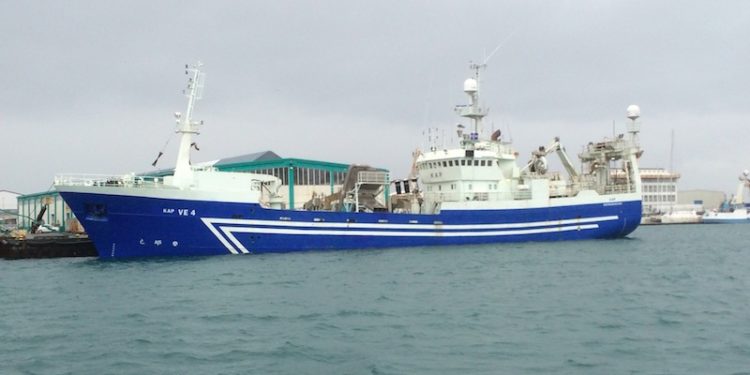Iceland’s fishing fleet has been crippled for an unprecedented two months since the current seamen’s strike began mid-December. This is easily the longest dispute to take place in Iceland between seamen and owners, with the government declining to take a hand in ending the strike.
Negotiations have been taking place in Iceland between unions and owners, and a solution seems to be still a distant prospect, although progress on surveys of the capelin stock are also underway.
The latest rumour is that the possibility of a better capelin season than had been forecast earlier this year could spur the owners in particular to seek a rapid solution to the dispute.
A very small quota had been set with only 11,000 tonnes allocated to the Icelandic fleet, but with the current survey looking increasingly positive and with the possibility of even a modest quota lift, there is little appetite to lose the out on the lucrative capelin roe season that takes place in the last few weeks or days of the season as the fish reach the right roe maturity for the Japanese market.
The extremely long strike has hit smaller processors, exporters and fish workers particularly hard, as well as having serious repercussions for fishing industry service companies, transport operators and other business sectors that are linked to fishing. Now the effects have spread and the first job losses have been reported at the Grimsby fish auction as fish from Iceland has been in short supply.
‘The strike continues and it continues to hurt. Supplies are close to nil from Iceland. As a result we have had to make some adjustments to staffing levels,’ Martyn Boyers, chief executive of Grimsby Fish Dock Enterprises, said to the Grimsby Telegraph yesterday.
Grimsby’s MP Melanie Onn has written to Fisheries Minister George Eustice to ask whether the government intends to make representations to the Icelandic government, or if the UK government intends to offer any financial assistance to the industry in Grimsby.









